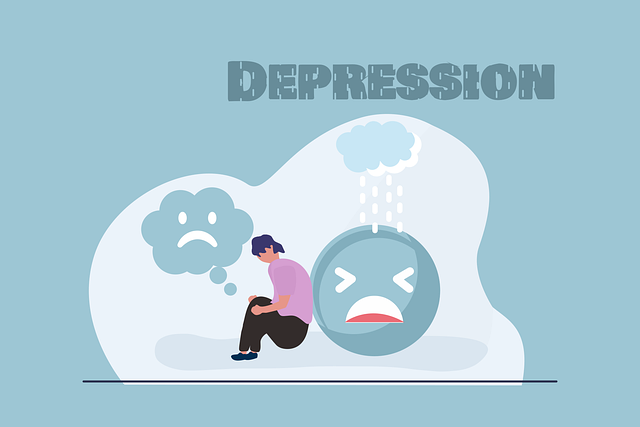Evaluating Louisville Autism Spectrum Disorder Therapy (ASDT) involves a multi-faceted approach combining standardized assessments like the Social Responsiveness Scale (SRS), mood and anxiety tools such as the Beck Depression Inventory (BDI) and Anxiety Severity Index (ASI), and self-esteem questionnaires. Integrating these metrics offers comprehensive insights, enabling data-driven adjustments to enhance client support. Participant and caregiver feedback, through surveys and interviews, provides qualitative context for tailoring strategies and ensuring inclusive practices. Long-term benefits are assessed through observational studies and regular check-ins, allowing practitioners to refine programs and boost community mental wellness.
Mental wellness program evaluations are crucial for ensuring effective support and care, especially in initiatives like Louisville Autism Spectrum Disorder Therapy. This article explores comprehensive evaluation methods, delving into key metrics and tools to assess program effectiveness. We highlight the importance of participant and caregiver feedback as an integral part of the evaluation process. Additionally, we discuss long-term impact strategies and continuous improvement tactics for optimal mental wellness program outcomes, specifically focusing on Louisville Autism Spectrum Disorder Therapy services.
- Assessing Program Effectiveness: Metrics and Tools for Louisville Autism Spectrum Disorder Therapy
- Participant and Caregiver Feedback: A Vital Component of Evaluation
- Long-term Impact and Continuous Improvement Strategies for Mental Wellness Programs
Assessing Program Effectiveness: Metrics and Tools for Louisville Autism Spectrum Disorder Therapy

Evaluating the effectiveness of Louisville Autism Spectrum Disorder Therapy (ASDT) programs is a multifaceted process, crucial for understanding and enhancing their impact. Metrics such as standardized assessments, client feedback, and observer ratings provide insights into various aspects of therapy. Standardized tests like the Social Responsiveness Scale (SRS) can measure changes in social communication and interaction skills, key areas of improvement for individuals on the ASD spectrum.
Additionally, tools focusing on mood management, anxiety relief, and self-esteem improvement are invaluable. For instance, the Beck Depression Inventory (BDI) assesses depressive symptoms, while scales gauging anxiety levels, like the Anxiety Severity Index (ASI), offer quantitative data on anxiety relief. Self-esteem improvement can be tracked through validated questionnaires that measure subjective well-being and self-perception. Integrating these diverse metrics ensures a comprehensive evaluation, allowing for data-driven adjustments to Louisville ASDT programs, ultimately enhancing their ability to support clients in managing symptoms and achieving better life outcomes.
Participant and Caregiver Feedback: A Vital Component of Evaluation

Participant and Caregiver feedback is a crucial component of evaluating any mental wellness program, particularly those focused on conditions like Louisville Autism Spectrum Disorder Therapy. Gathering insights from both individuals with autism and their caregivers provides invaluable context and depth to assessment data. This qualitative information offers a glimpse into participants’ experiences, the impact of therapy on their daily lives, and areas where adjustments could be made for better outcomes.
By incorporating participant and caregiver feedback, mental health professionals can tailor their Community Outreach Program Implementation strategies and Empathy Building Strategies. Moreover, it aids in identifying effective Stress Reduction Methods that resonate with diverse needs within the spectrum. This collaborative approach ensures that the program aligns with participants’ lived experiences, fostering a more inclusive and successful therapeutic journey.
Long-term Impact and Continuous Improvement Strategies for Mental Wellness Programs

Mental wellness programs aim to create long-lasting positive changes in individuals’ lives. To assess the true impact of such initiatives, especially for conditions like Louisville Autism Spectrum Disorder Therapy, a combination of quantitative and qualitative methods is essential. Surveys, interviews, and participant feedback provide insights into immediate improvements, but they may not capture the full extent of long-term benefits. Observational studies and regular check-ins over an extended period are crucial to understanding how participants maintain their mental health progress, adapt coping skills development, and integrate trauma support services or stress reduction methods into their daily lives.
Continuous improvement in mental wellness programs requires a proactive approach. By analyzing the data collected through these evaluation methods, practitioners can identify areas of success and aspects that need refinement. This knowledge enables them to adapt strategies, incorporate new research-backed techniques, and ensure the program remains effective and relevant, ultimately enhancing the overall well-being of the community it serves.
Evaluating mental wellness programs, such as Louisville Autism Spectrum Disorder Therapy, requires a multi-faceted approach. By combining metric-driven assessments, participant and caregiver feedback, and strategies for measuring long-term impact, we can ensure these programs effectively address the unique needs of individuals on the autism spectrum. This comprehensive evaluation not only improves current practices but also guides continuous improvement, ultimately enhancing the overall well-being and quality of life for those seeking support.














